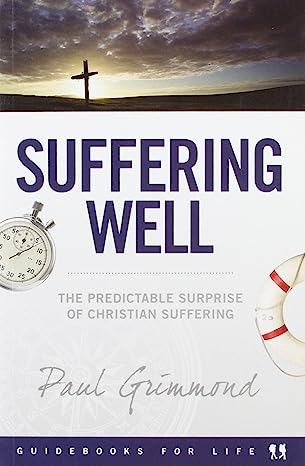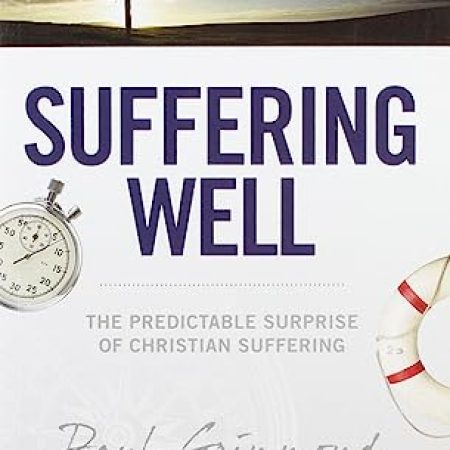
Over the years I have read a number of books on suffering but this one is refreshingly different and comes at this important subject from some very helpful and biblical angles which are all too often neglected or ignored in some other books that address this subject.
Paul Grimmond looks at different types of suffering experienced by Christians and while his list includes the usual topics of persecution for the sake of Christ and of living in a fallen world he also briefly touches on the suffering caused by compassion for others, as when we observe the hardness and resistance towards the gospel on the part of those we love or the grief we feel, like that often expressed by the Psalmist in 119, when we see the things oof God being slighted.
The first aspect of Grimmond’s approach to his subject that I like is that underlying everythingl is an evidently high view of the sovereignty of God, with statements like, “The world experiences suffering not because God is out of control but because God is in control” and “the key to understanding suffering well lies in understanding the fullness of God’s revelation about suffering”. He shows that our understanding of and reaction to suffering has been conditioned by cultural changes so that, “we have begun reading our Bibles in the light of these stories (of tragedies and disasters) rather than reading these stories in light of the Bible.” We have got our perspective skewed and so ask the wrong questions about life’s experiences and from a wrong attitude.
Secondly, Grimmond doesn’t flinch from the uncomfortable, but biblical, teaching on the inevitability of suffering for the sake of Christ. He writes, “Just as an athlete who never aches after training is not a real athlete, and a soldier who is never scarred by battle is not a real soldier, so a Christian unmarked by suffering is not a real child of God.”
Grimmond doesn’t duck the difficult issues or questions and doesn’t resort to easy, pat answers and closes his book by advising his readers that the best way to suffer well is to trust God which means we need to know God better which means we need to get to know God’s Word better. I don’t think I have previously read a book on suffering which closes by encouraging more reading of the Scriptures. Very refreshing.
If I have one small criticism of the book it is that I didn’t always find that it flowed well from one chapter to another. It seems a little disjointed at times and more than once I had to turn back a few pages to remind myself of the flow of the author’s argument.
This is a worthwhile and welcome addition to the list of books on this topic and I warmly commend it.
For the purpose of review, I received a complimentary copy of the book from the Publishers. I was under no obligation to write a positive review.
Matthias Media (16 Dec. 2011) Review written in 2012
